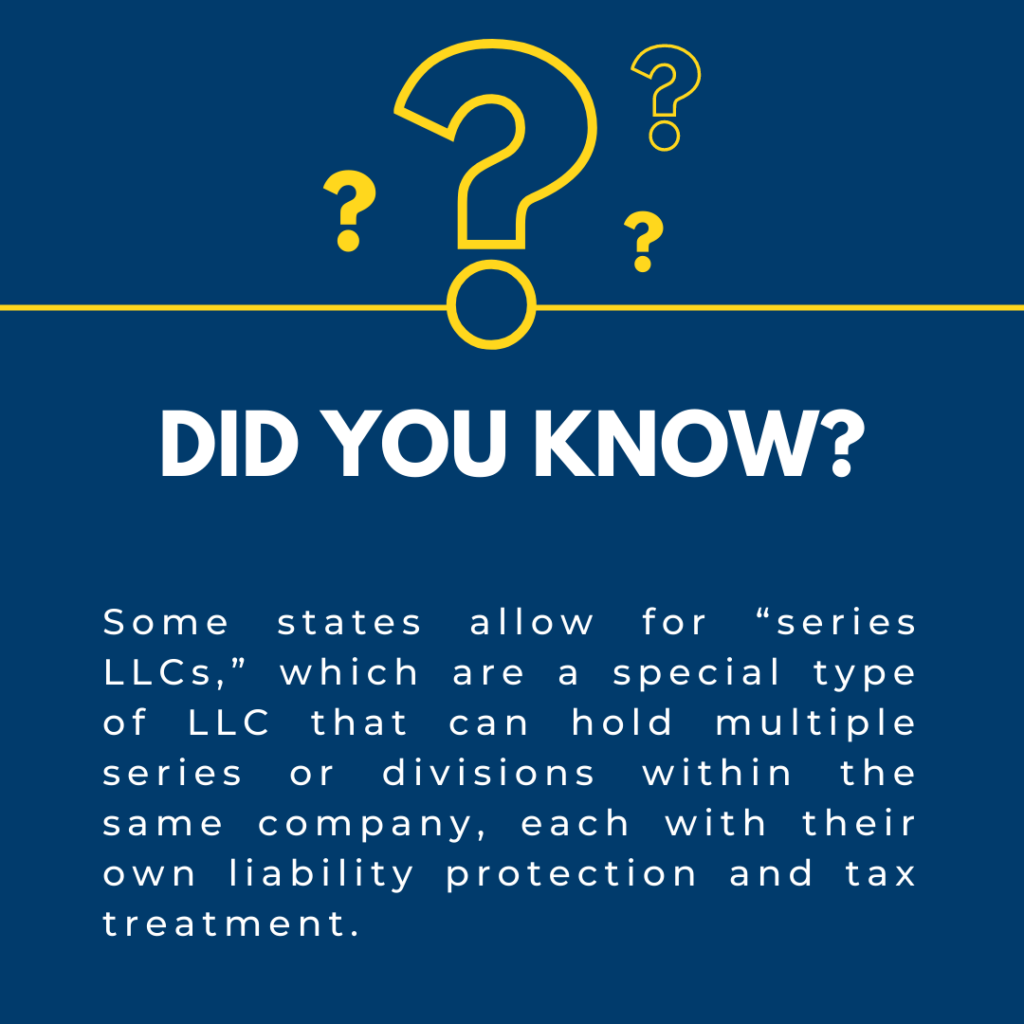Diving into the world of business ownership is both exhilarating and fulfilling, but navigating Indiana’s business registration process might seem like a steep climb for those unfamiliar with it. Don’t worry! With the right guidance and tools, getting your Indiana-based business officially recognized can be a breeze.
This guide provides a comprehensive roadmap to simplify each step of registering your business in Indiana, complete with practical tips and resources to make your path smoother. Whether you’re starting a new venture or formalizing an existing one, this guide breaks down the process into seven digestible steps.
Knowing that business registration can feel overwhelming, we’ve curated a list of top-notch services like Tailor Brands to guide you through every step. So, without further ado, let’s start your journey to register your Indiana business officially!
>> Start Business in Indiana With Tailor Brands >>
How to Register Your Business in Indiana in 7 Simple Steps
Embarking on the journey of business registration in Indiana is straightforward when equipped with the right know-how. Follow these 7 crucial steps to hasten the creation of your enterprise based in Indiana.
Step 1: Select Your Business Entity
Choosing the best business structure for your venture relies on the specifics of your enterprise and what you aim to achieve in terms of growth. We’ve previously explored both incorporated and unincorporated business formations available in Indiana, now we will probe further into each option and their respective roles.
Remember that registering a business in Indiana with the Secretary of State becomes necessary only if you decide on a structure that requires incorporation.
Sole Proprietorship
In Indiana, the simplest form of business organization is a sole proprietorship, where the law considers both the owner and the enterprise as one legal unit. As a result, all financial obligations and responsibilities associated with the business fall squarely on the shoulders of its owner.
The setup process is straightforward, with very few legal or administrative hoops. Although there’s no need for state registration if you’re operating as a sole proprietor in Indiana, obtaining certain local permits or licenses may still be necessary.
General Partnership
A business partnership, typically referred to as a “general partnership,” involves multiple owners who jointly partake in the gains and setbacks of the company. Each member is personally accountable for any financial liabilities or legal responsibilities arising from the company’s operations.
In Indiana, registering such a partnership on a state level is optional. However, it might be necessary to lodge an application for “Fictitious Business Name Registration” within your operating county.
Limited Partnership (LP)
In the state of Indiana, a restricted partnership is composed of at least one general partner who oversees operations and carries infinite personal liability and one or more limited partners who invest money but are only held liable to a certain extent.
To set up such an LP in Indiana, it’s mandatory to submit a “Certificate of Limited Partnership” with the office of the Secretary of State in Indiana.
Limited Liability Company (LLC)
An LLC or Limited Liability Company is a flexible business entity that pairs the limited liability of a corporation with the tax benefits and straightforwardness of a partnership. In Indiana, it’s required to submit “Articles of Organization for a Limited Liability Company” to the Secretary of State in Indiana and craft an Operating Agreement outlining the managerial hierarchy and ownership configuration within the company.
Corporation
A business corporation is a unique legal construct, separate from its proprietors (often termed as shareholders), which offers the shield of limited liability. In the state of Indiana, corporations are bifurcated into two categories:
- C-corporations
- S-corporations
To set up a corporate entity in Indiana, it’s necessary to submit either “Articles of Incorporation for a Business Corporation” or “Articles of Incorporation for a Nonprofit Corporation” to the Secretary of State in Indiana, depending on your business model.
Operating as a corporation requires more formal procedures, including drafting bylaws, issuing shares, and holding regular meetings involving board members and shareholders.
Decide upon the type of business structure that suits your requirements best regarding safeguarding against liabilities, managing taxes, and handling administrative necessities. If you need help with this crucial decision-making process, don’t hesitate to seek advice from legal or business experts.
>> Indiana Business Registration – Tailor Brands >>

Step 2: Select a Unique Business Name
In Indiana, three primary strategies exist for bestowing a name upon your enterprise: registering an official entity name, acquiring a trademark, or operating under one legal title while officially registered under another. The rules governing business names differ across states; hence it’s crucial to acquaint yourself with the distinct requirements in Indiana.
The specific needs and conditions of your entity will influence the choice you make regarding how to name your business in Indiana.
You might use all three strategies to gain sole ownership over your company’s moniker. Alternatively, you may opt for just one out of these three possibilities. While not obligatory, achieving uniformity across all registration methods often proves beneficial. Here’s a more detailed overview of each naming option in Indiana:
Legal Entity Name
In Indiana, it’s mandatory for businesses to have a registered legal entity name. This unique identification helps the state recognize individual companies. The entity names need to be distinctive to avoid any potential confusion with other businesses having similar monikers.
The rules for naming in Indiana encompass stipulations regarding business suffixes such as LLC, LP, or Corp and insist that the title precisely echoes the essence of the business being documented. To confirm if your chosen name is available or already taken, you can check using the INBiz database of the Indiana Secretary of State.
Trademark
In Indiana, a trademark is an intellectual asset that delivers nationwide safeguarding for a company name or emblem. To confirm and establish the exclusivity of your chosen name or logo, it’s essential to execute a search in the USPTO database to ensure that no previous registration exists.
Once you’ve successfully registered a trademark, it prevents other businesses from utilizing an identical or comparable name or logo for similar products or services. This grants protection across the United States. However, one should remember that owning a trademark doesn’t give carte blanche rights for unlimited usage of such a name or logo under all circumstances.
Doing Business As (DBA)
The state of Indiana provides the provision for businesses to be registered under a formal title yet conduct operations under an alternate or Doing Business As (DBA) name. This causes the filing of a Certificate of Assumed Business Name with the office of the Secretary of State in Indiana. Although federal trademark laws govern DBA names, there isn’t an obligation for these names to stand unique at the local level.
Understanding and assessing these possibilities for business naming can aid you in officially registering your business name within Indiana’s jurisdiction while protecting your brand’s identity effectively.
>> Indiana Business Registration – Tailor Brands >>

Step 3: Consider Taxes and Other Costs in Indiana
Registering a business in Indiana is liable to various state and federal taxes. The typical taxes that these firms should anticipate paying include:
- Indiana Corporate Income Tax: For those with Limited Liability Companies (LLCs) established and operating within Indiana, you may be subject to the Indiana Corporate Income Tax. Presently, this tax is pegged at 5.25%. However, a reduction to 4.9% is expected by July 2021.
- Indiana Income Tax: Staff members of your Limited Liability Company are obligated to contribute towards the state income tax. The standing rate for Indiana’s income tax is pegged at 3.23%. However, certain counties in Indiana impose an extra tax, causing a combined taxation range of 3.73% to 6.13%.
- Sales Tax: Across the state of Indiana, a sales tax of 7% is uniformly applied. Moreover, it’s not uncommon for numerous counties and cities within the state to impose their own distinct sales taxes.
Beyond these fiscal obligations, registering a business in Indiana could potentially face a variety of additional taxes, such as:
- Franchise Tax: It’s mandatory for LLCs registered in Indiana to remit an annual franchise tax amounting to $150.
- Unemployment Insurance Tax: It’s mandatory for Indiana-based Limited Liability Companies that have a workforce to contribute towards unemployment insurance taxes. This tax is calculated at a rate of 1.2% on the initial $9,000 paid as wages to every employee.
- Property Tax: Limited Liability Companies (LLCs) based in Indiana, possessing real estate within the state’s boundaries, could face property taxation. The tax imposed on such properties is different but fluctuates based on the geographical location of the asset.
It’s crucial to understand that the taxes an Indiana-based LLC may owe are only a fraction of the total. The precise tax obligations of your LLC will hinge on numerous factors, including the nature of your business operations, revenue generated, and staff strength.
Should you be venturing into setting up an LLC in Indiana, it becomes essential to seek advice from a tax consultant to identify which taxes will be levied on your business.
>> Register Your Business in Indiana With Tailor Brands >>
Step 4: Register and Acquire Licenses and Permits in Indiana
To adhere to all required legal regulations, you must secure the appropriate permits and licenses for your enterprise. Here’s a rundown of the process involved:
Tax Registration: If your intentions involve vending merchandise within the boundaries of Indiana, you must enlist with the Department of Revenue (DOR) for purposes of sales tax collection.
On a further note, in case you have personnel under your employment, registration with DOR is mandatory regarding employer withholding taxes. To facilitate this process, Form BT-1 (Business Tax Application) can be submitted digitally via the DOR website and allows for simultaneous registration for other business-related taxes as well.
EIN (Employer Identification Number): Should your enterprise employ staff or be subject to independent taxation, it’s imperative that you secure a Federal Employer Identification Number (EIN) from the IRS. Even in cases where this isn’t compulsory, acquiring an EIN can prove advantageous for business operations.
Typically, banks demand an EIN to establish a corporate account, while other businesses you collaborate with may need your EIN for transaction processing. Obtaining an EIN is straightforward – simply apply through the IRS website without any associated filing costs.
Regulatory Licenses and Permits: Your company’s operations could necessitate several business licenses and permits. These could span diverse categories like health and safety, contractor services, childcare services, financial services, transportation, and professional licensing. It’s prudent to review the online platforms of city or county administrations where your enterprise conducts business for information on local licenses and permits.
Professional and Occupational Licenses: Should you or your staff be engaged in particular fields or jobs, obtaining professional or occupational licenses may be necessary. The Professional Licensing Agency (PLA) in Indiana supervises numerous regulatory bodies and committees tasked with regulating licensed professions and vocations.
A comprehensive directory of all occupations governed by the PLA can be found on their official web portal.
Remember to refer to the appropriate sources and online platforms for comprehensive details and specific criteria about licenses and permits, depending on your business’s nature and whereabouts.
>> Register Your Business With Tailor Brands >>
Step 5: Establish a Business Bank Account in Indiana
After securing your Employer Identification Number (EIN), the next logical step is establishing a commercial banking account in Indiana.
Indiana’s legal framework stipulates that Limited Liability Partnerships (LLPs), Limited Liability Companies (LLCs), and corporations must operate separate bank accounts specifically for business dealings. In contrast, sole proprietors and partnerships not incorporated are under no legal obligation to distinguish between personal and professional financial accounts.
To set up a business banking account within Indiana’s borders, you’ll need to visit a local bank branch personally and fulfill all necessary paperwork requirements. It would be prudent of you to examine available options at various banks, scrutinizing their offerings, interest rates, perks, etc., before settling on one that best serves your needs.
Even if your operation falls into the categories of sole proprietorships or unincorporated partnerships in Indiana, it’s still advisable for bookkeeping clarity to maintain dedicated business bank accounts.
This segregation aids in cleanly demarcating personal from professional finances. Plus, should the decision be made later on to incorporate your enterprise officially. This strategy can simplify matters considerably.
Step 6: Safeguard Your Intellectual Property in Indiana
As you register a business in Indiana, safeguarding any intellectual property (IP) essential to your business triumph becomes paramount.
This may encompass protecting your brand’s identity and emblem from unsanctioned use by third parties or defending your merchandise concepts or original creations (for instance, literary, artistic, or musical works) from replication.
To ensure this security in Indiana, ponder over these alternatives and commence with the procedures at the earliest possible time to deter others from taking advantage of your IP:
Trademark
In Indiana, a trademark is distinguished by its unique emblem, term, slogan, or concept which makes a product or service stand out from the rest in the market. To safeguard these trademarks legally, they must be registered at the United States Patent and Trademark Office (USPTO).
The duration of this registration procedure typically spans between four and six months. Once completed successfully, your trademark earns nationwide protection enabling you to take legal steps against unauthorized users.
By ensuring your trademark’s registration with USPTO in Indiana, you’re not only fortifying your brand identity and reputation but also acquiring legal tools to deter any unauthorized usage.
Copyright
In the state of Indiana, there are stringent copyright laws in place that protect unique authorial works. This protection extends to various creative endeavors, including literature, music, drama, art, and certain intellectual properties. It also includes written documents, software programs, online content as well as movies or soundtracks, and even images.
When you create an original work and register a business in Indiana, your copyright protection comes into effect automatically.
You may exclusively reproduce your creation at will, distribute it, design derivative versions from it, and sell any intellectual property contained therein – essentially giving you complete control over the use of your work.
For enhanced legal security and proof of ownership rights, registration with the U.S. Copyright Office is a prudent step forward for anyone interested in protecting their creations further.
If you register your copyright within Indiana’s jurisdiction, this allows not only defending against potential infringements but also grants one the ability to enforce these rights through court proceedings if required.
Patent
If your Indiana-based enterprise is engaged in the creation of innovative goods or machinery, securing a patent becomes imperative. The benefit of a patent is that it affords exclusivity to inventors, barring others from producing, trading, or importing the patented item for a designated period.
The journey towards acquiring a patent can be complex and protracted, often spanning up to half a decade. Given this timeline, it’s crucial to initiate your patent application at the earliest opportunity if you possess an invention worthy of protection. Patent requests are forwarded to the United States Patent and Trademark Office (USPTO).
By diligently protecting your intellectual assets within Indiana boundaries, you bolster not only your products but also your brand image and unique creations. This strategic move ensures you maintain an edge over competitors while fostering continued business growth and success.
Step 7: Establish a Robust Payment Framework for Your Indiana Business
In registering your Indiana-located business is primed to assist customers right after registration. It’s vital to establish an efficient and well-coordinated payment receipt mechanism.
Many solutions for processing payments exist, offering unambiguous user interfaces and uncomplicated amalgamation with your digital presence or point-of-sale (POS) system. Significant choices include Square, Stripe, and PayPal. These platforms provide adaptability and simplicity in initiation as well as customization to coincide with your commercial goals.
Reliable payment processors offer a broad spectrum of payment methods, including but not limited to credit and debit cards, ACH transactions, and digital wallets such as Apple Pay and Google Pay. By choosing a trustworthy service for processing payments, you provide your customers with the flexibility to use their preferred modes on a safe system. This ensures that all parties enjoy an effortless transaction process.
Apart from picking out an appropriate payment processor, it’s critical to comply with Indiana’s sales tax regulations. This involves obtaining an Indiana Sales Tax License issued by the Indiana Department of Revenue, which permits the collection of sales tax on taxable goods or services.
When you have established this financial structure in your business based in Indiana, you’re better prepared to cater securely and effectively to your client’s needs while generating revenue. Following these steps will put your business on the right path toward establishing itself as legally compliant within the state of Indiana.
>> Register Your Business in Indiana With Tailor Brands >>
Top 6 Business Registration Services for Indiana Entrepreneurs
If you’re a budding entrepreneur or proprietor who wants to register a small business in Indiana seeking to formalize your enterprise, an array of business registration services stands ready to aid you.
These LLC formation services provide diverse approaches to help businesses during their inception, adherence to state and federal laws, and expansion. Here’s a list of some premier business registration service providers specifically designed for the needs of entrepreneurs in Indiana:
Tailor Brands

Tailor Brands operates as a virtual design and branding agency, supporting Indiana-based firms in establishing a uniform and refined corporate persona. This agency offers an array of brand development solutions like logo creation, business card layout design, and social media identity formation.
Besides supplying businesses with the necessary instruments and materials for personalizing their branded items, Tailor Brands is adept at sculpting a professional brand facade to draw in customers. Notably, though, it doesn’t function as a traditional company incorporation service.
BusinessRocket

BusinessRocket is a cutting-edge online platform that provides vital services for registering a business in Iowa. With its easy-to-use interface and expert assistance, BusinessRocket streamlines the entire process, starting from choosing the right business structure to completing all required paperwork and acquiring relevant licenses.
This platform offers personalized solutions that are tailored to meet the unique needs of every client. It guarantees efficiency, cost-effectiveness, and full adherence to state regulations.
By leveraging intuitive tools and comprehensive resources, BusinessRocket empowers entrepreneurs to confidently establish their ventures while entrusting administrative responsibilities to industry experts.
Northwest Registered Agent

Northwest Registered Agent is a well-respected online firm focused on business registration, offering registered agent services, compliance management, and document filing tailored for businesses in Indiana.
They’ve earned their reputation through outstanding customer service and top-notch quality. They provide bespoke assistance to keep businesses aligned with state and federal rules. Additionally, they offer various business formation services targeting LLCs, corporations, and nonprofits.
>> Indiana Business Registration – Northwest Registered Agent >>
ZenBusiness

ZenBusiness is a digital platform that specializes in the registration of businesses online, offering services such as business creation, registered agent facilities, annual report submission, and other additional resources for enterprises within Indiana.
They offer packages at reasonable rates, including customized assistance and tools to help maintain regulatory standards and encourage business expansion. Their intuitive website simplifies the registration process to aid entrepreneurs in registering their businesses in Indiana.
Swyft Filings

Swyft Filings has made a name for itself as an acclaimed provider of business registration services, delivering fast and uncomplicated company establishment solutions – from LLC creation to incorporation and regulatory adherence for Indiana’s business innovators.
They extend tailor-made assistance and valuable resources to steer enterprises through the structuring process while ensuring they meet state and federal rules. Boasting an easily navigable website coupled with fair costs, Swyft Filings makes it easier than ever for entrepreneurs to register their businesses.
Bizee

Bizee is a digital registration service catering to Indiana’s vibrant entrepreneurial scene by offering swift and economical solutions for business establishments. Their packages include registered agent services, adherence management, and document filing.
The platform Bizee offers is user-friendly and productive, making the otherwise complex business registration process straightforward. Furthermore, they provide continuous guidance and resources to ensure compliance while fostering business expansion.
In assessing these online registration services offered by various businesses in Indiana, entrepreneurs can pinpoint the one that best aligns with their specific needs. This step significantly simplifies the registration procedure paving the way for an expedient start-up journey.
Business Registration Laws in Indiana
In the process of registering a business in Indiana, several governing laws and norms must be adhered to by business owners. Grasping these prerequisites is vital in order to keep your enterprise within legal boundaries and prevent any potential legal issues. Highlighted below are some critical regulations every entrepreneur operating in Indiana should familiarize themselves with:
Business Entity Registration
According to the legal requirements for business registration in Indiana, every business is obliged to designate and register its organizational structure, be it an LLC, corporation, partnership, or any other form with the Secretary of State in Indiana. The procedure for registration hinges on the specific type of organization.
Trade Name Registration
Should you wish to operate your enterprise under a name that differs from its legal moniker, it’s mandatory for you to register the trade name. As per the laws of Indiana, both LLCs and corporations are obliged to register their respective trade names with the State Secretary. On the other hand, sole proprietorships or general partnerships complete this process at county level.
Trademark Registration
Preserving the distinctiveness of your corporate persona is paramount. By registering logos or brands as trademarks with the Secretary of State, you fortify their protection. This strategic move prevents other enterprises from misusing your unique brand image.
Professional Licensing
Certain professions and industries in Indiana are governed by specific licensing laws. The Professional Licensing Agency (PLA) of Indiana is responsible for administering these licenses. It’s crucial that businesses operating within these regulated sectors comprehend and meet the stipulated licensing criteria.
Local Business Licensing
Beyond the necessity of acquiring statewide licenses in Indiana, it’s possible that municipal government bodies may mandate businesses to obtain local licensing. The criteria for these permissions differ based on both geographical location and the specific type of your business operations.
Corporate Naming
Under Indiana’s legal provisions, it’s essential to pick a unique name for your company that won’t be easily mistaken for another existing business. Hence, you should opt for a distinctive brand name and abide by the mandatory naming rules.
Articles of Incorporation
In case you’ve decided to establish your company under the corporate structure, it’s mandatory by Indiana law to submit the Articles of Incorporation document to the Secretary of State. This crucial paper includes essential details regarding your corporation and how it functions.
Annual Reporting
In order to preserve their reputable status, it’s mandatory for companies to submit a yearly report to the State Secretary. Failure to adhere to this stipulation could potentially lead to fines and legal hurdles.
Employer Identification Number (EIN)
The Internal Revenue Service (IRS) necessitates each Indiana-based enterprise to procure an Employer Identification Number (EIN). Similar to a Social Security number for your corporation, this identifier is indispensable for taxation documentation and data reporting.
Foreign LLC Registration
For businesses established outside of Indiana planning to register a business in Indiana to extend their operations within its borders, they’re legally required to sign up as a foreign LLC in accordance with the state’s laws. This critical measure is foundational for lawfully carrying out business transactions across various states.
>> Register Your Business in Indiana With Tailor Brands >>
Alternative Business Formation Procedures in Indiana
Here are some alternatives on how to register a business in Indiana:
Benefit Corporation (B-Corp)
Should your business objective stretch beyond mere profit-making to include societal or ecological goals, you should establish a benefit corporation. The mandate of such corporations is to assess the repercussions of their resolutions on multiple parties involved, including the workforce, local communities, and the environment.
In order to set up a benefit corporation, it’s necessary for you to submit an article of Incorporation document to the Indiana Secretary of State and comply with certain legislated prerequisites specific to benefit corporations.
Series LLC
A series LLC distinguishes itself as a special kind of limited liability company, enabling the establishment of multiple divisions or sections under one overarching LLC. Every division can possess its own set of assets, liabilities, and members, thus offering an internal safeguard and division.
If you wish to constitute a series LLC in Indiana, it’s mandatory that specific terminology be included within the Articles of Organization during submission to the Secretary of State in Indiana.
Foreign Entity Registration
Should your business be established in a different state, and you’re contemplating broadening your scope into Indiana, it may be necessary to register as an out-of-state entity. This registration facilitates the lawful operation of your current enterprise within the confines of Indiana.
You’re obliged to submit a formal application for an Out-of-State Entity with the Secretary of State’s office in Indiana, supply all requisite paperwork, and meet any further stipulations that may apply.
Franchise
If you’ve ever considered being a franchise business owner, there are myriad opportunities ready for exploration with already established franchisors in Indiana. The essence of franchising lies in the binding agreement between the franchisor (the proprietor of the well-known brand) and a franchisee (the individual or entity bestowed with authorization to operate under said brand).
The specifics of franchise contracts often come laden with unique prerequisites and rules, hence it’s imperative that one scrutinizes every detail in the franchise disclosure documents. It’s also highly recommended to seek legal counsel from an attorney specializing in franchises before taking any further steps.
Indiana provides a plethora of other options for establishing businesses apart from franchises. Each alternative comes equipped with its own perks, legal obligations, and implications. A thorough investigation is key along with consultation sessions from experts ensuring adherence to all applicable laws and regulations prior to initiating any form of business institution method.
>> Try Tailor Brands Today! >>
Benefits of Choosing Indiana for Your Business
Registering your business in Indiana can bring a variety of benefits, including:
- Competitive Business Costs: Compared to several other regions, Indiana provides a more cost-effective environment for businesses. This includes reasonable pricing in areas such as commercial property, utilities, and labor compensation. These savings can significantly influence a company’s financial health and play a role in its overarching triumph.
- Manufacturing Strength: Indiana’s reputation for having a robust manufacturing landscape provides a multitude of possibilities for enterprises within this industry. The combination of the state’s proficient labor pool, solid infrastructure, and policies that are conducive to businesses form an encouraging milieu in which manufacturing entities can flourish.
- Robust Infrastructure: Indiana takes pride in its comprehensive network of transport, encompassing roads, rail lines, airports, and proximity to the Great Lakes. This provides businesses with the advantage of effortless connectivity to their clients and vendors on both a national and global scale.
Business Registration Necessity in Indiana: Uncover the Facts
The prerequisites for business registration in Indiana are contingent upon the selected corporate structure and specific situations. It’s optional for sole proprietorships and general partnerships functioning under the owner’s legal moniker to register with the Secretary of State in Indiana.
However, when employing a fabricated trade name, also known as DBA, they’re mandated to enlist it with the applicable county recorder’s office. Entities such as corporations, Limited Liability Companies (LLCs), and Limited Partnerships are required by law to register with the Secretary of State in Indiana.
To ensure your business adheres to all relevant legislation when setting up operations in Indiana, seek expert advice from legal or tax professionals.
>> Get Started With Tailor Brands >>
How to Register Your Business in Indiana – Frequently Asked Questions
Bottom Line on How to Register Your Business in Indiana
Following state laws and regulations is vital when registering your business in Indiana. By carefully completing the necessary steps, you establish a strong foundation for your company.
It’s essential to select a fitting business name and structure that aligns with the Indiana Secretary of State’s guidelines, complete all required documentation, and obtain the appropriate industry-specific or regional permits.
Services like Tailor Brands can simplify this process and ensure full compliance. Properly registering your business in Indiana helps you avoid potential legal and financial issues, paving the way for future success.
>> Get Started With Tailor Brands >>
Related Articles
Learn How To Register a Business by State
Explore our interactive U.S. map to cultivate your knowledge on registering a business by exploring the unique processes and requirements specific to each state.
 Sections of this topic
Sections of this topic
















